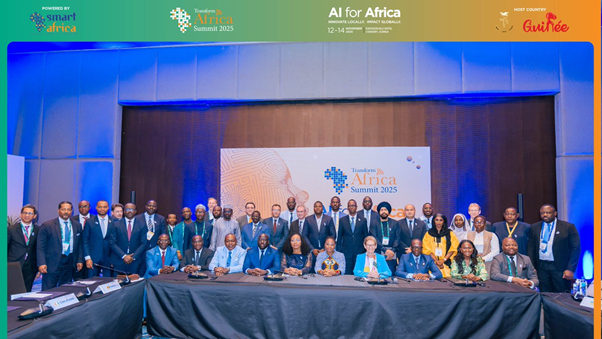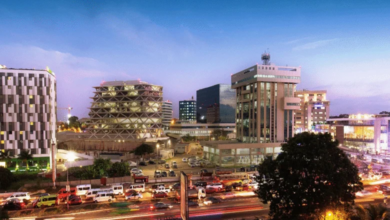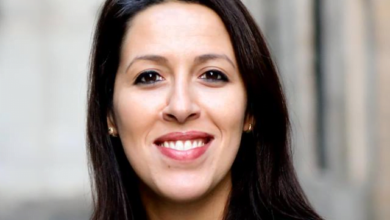Smart Africa : when Africa takes its digital destiny into its own hands
Created in 2013 under the impetus of 8 founding states, the Smart Africa initiative has become one of the most ambitious levers of the continent’s digital transformation. Today, it brings together more than 40 member states, financial institutions, and technical partners, with the ambition of building a single digital market in Africa by 2030. Access to high-speed broadband, the development of artificial intelligence, e-government, and innovation constitute its strategic pillars.

Since its creation, Smart Africa has multiplied structuring initiatives: the launch of the One Africa Network (OAN) to connect member states via a high-speed network, the establishment of the Smart Africa Digital Academy to train thousands of young Africans in digital skills, and the creation of the African AI Blueprint to guide the development of artificial intelligence adapted to local realities.
According to Lacina Koné, CEO of Smart Africa, “Artificial intelligence must not be a wave that overwhelms us, but a current that we master.” This vision reflects the alliance’s intention to no longer passively undergo technological revolutions, but to lay the foundations of African digital sovereignty, capable of defining its own standards and training its experts.
Creation of the Africa Artificial Intelligence Council
During its 20th Steering Committee, Smart Africa officially approved the creation of the Africa Artificial Intelligence Council, tasked with coordinating AI infrastructure, talent training, datasets, governance, and use cases across the continent. At the same time, a continental cybersecurity master plan was implemented, structured around three axes — talent, process, technology — with the support of an innovation center in Abidjan and the creation of ANCA (African Network of Cybersecurity Authorities), a pan-African network aimed at strengthening cybersecurity and sharing best practices.
In the field of digital health, Smart Africa aims for the interoperability of health systems by 2027, to allow every African citizen to securely access their medical data, even across borders.
A common priority: Africa must move from consuming technology to producing it
During the 12th Smart Africa Board Meeting, held on November 12 on the sidelines of the Transform Africa Summit, leaders reaffirmed the continent’s unified commitment to advancing digital transformation and accelerating artificial intelligence readiness. Interventions highlighted a common priority: Africa must shift from technology consumption to production. Strengthening connectivity, investing in skills, and creating AI centers across the continent were identified as essential steps to enable young people to fully participate in the digital economy.
The meeting also highlighted Smart Africa’s impact on talent development, with countries such as Sierra Leone already training hundreds of youth and professionals through the Smart Africa Digital Academy. The Board’s discussions showed Smart Africa’s evolution into a results-oriented ecosystem, supported by a growing number of members and trusted partners. New governance milestones were announced, including the pre-selection of ICT ministers and independent board members to strengthen oversight and strategic guidance.
A clear message emerged: Africa has the capacity to shape its digital future, and Smart Africa remains the continental engine guiding this ambition.
Accessibility, the major challenge
Despite these advances, several structural obstacles remain. Internet access is still limited: according to the Foresight Africa 2025–2030 report, only 37% of Africans used the Internet in 2023, with costs remaining very high, especially in rural areas. Unstable electricity is another barrier: more than 600 million people lack reliable energy access, making the operation of data centers costly and risky.
Africa still accounts for less than 1% of the world’s data center capacity, which slows the deployment of AI applications. The shortage of specialized talent is acute: many young professionals trained in African universities migrate to more advanced technology hubs. On the governance side, dependence on foreign investment and regulatory fragmentation complicate the creation of a unified digital market. The governance crisis concerning AFRINIC in July 2025 illustrates these risks: according to Smart Africa, a failure of the regional IP address registry could undermine the continent’s digital sovereignty.
Finally, financing remains a major challenge: building infrastructure, training talent, and deploying digital solutions require very high investments, which current models (grants, public-private partnerships) struggle to cover.
A political and strategic vision
Smart Africa is not merely a technical project: it embodies a political manifesto for African digital autonomy. Its proponents argue that Africa must create its own digital standards to avoid dependency on imported technologies. The initiative thus lays the foundation for an Africa capable of managing its data, protecting its infrastructure, and training the experts it needs.
If Smart Africa succeeds in effectively mobilizing member states, financial institutions, and the private sector, it can foster the emergence of a sovereign and inclusive digital ecosystem. Otherwise, there is a risk that progress will remain concentrated in a few better-equipped countries, widening the digital divide between those who master technology and those who remain dependent on it.
Successes and challenges reflecting the ambitions and constraints of digital Africa
With more than 40 member states, several regional hubs, and flagship projects already underway, Smart Africa has become a central player in continental digital integration. Its successes and challenges reflect the ambitions and constraints of digital Africa: sovereignty, inclusion, innovation, and resilience in the face of energy and financial constraints.
« We are not in a race. We are not catching up. Africa is redefining the finish line on its own terms, » says Lacina Koné.
With Smart Africa, the continent is laying the foundations for a sovereign and inclusive digital future — not by following, but by redefining the rules of the technological game at its own pace, according to its own values and needs.






